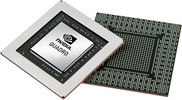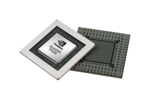NVIDIA Quadro P2000 Max-Q vs NVIDIA Quadro P5200 vs NVIDIA Quadro P3000 Max-Q
NVIDIA Quadro P2000 Max-Q
► remove from comparison
The Nvidia Quadro P2000 is a mobile mid-range workstation graphics card for notebooks. Similar to the consumer GeForce GTX 1050 Ti (Laptop), it is based on the GP107 chip with 768 shaders. Compared to the normal P2000, the Max-Q variant offers a lower clock speed at a reduced power consumption. The graphics card is designed for the Kaby Lake / Coffee Lake generation.
The Quadro GPUs offer certified drivers, which are optimized for stability and performance in professional applications (CAD, DCC, medical, prospection, and visualizing applications). The performance in these areas is therefore much better compared to corresponding consumer GPUs.
Performance
The theoretical performance should be similar with the GeForce GTX 1050 Ti Max-Q.
NVIDIA Quadro P5200
► remove from comparison
The Nvidia Quadro P5200 is a mobile high-end workstation graphics card for laptops. Similar to the consumer GeForce GTX 1080 (Laptop), it is based on a GP104 chip with 2560 shaders but uses a bit slower GDDR5 instead of GDDR5X of the GTX1080. The Quadro P5200 ist the successor to the Quadro P5000. There will be a normal (Max-P) and a slower but more efficient (Max-Q) variant of the card. For the Max-P variant, the clock speeds are specified from 1556 (base) to 1746 MHz (Boost), the power efficient Max-Q clocks from 1316 MHz (base) to 1569 (Boost) according to a GPU-Z screenshot from a reader (-15% / -10%). The 16 GB GDDR5 are clocked at 3,6 GHz leading to a memory bandwidth of 230 GB/s.
The Quadro GPUs offer certified drivers, which are optimized for stability and performance in professional applications (CAD, DCC, medical, prospection, and visualizing applications). The performance in these areas is therefore much better compared to corresponding consumer GPUs.
Performance
The theoretical performance should be a bit above the older Quadro P5000. Altough the clock speed increase is not yet known, the power consumption is rumored to be a lot higher, which should lead to a noticable improved performance. Nvidia specifies a theoretical peak performance of 8,9 GFLOPS (Single Precision).
Power Consumption
The power consumption of the Quadro P5200 is specified by Nvidia as 150 Watt (Max-P) and rumored to be 100 - 110 Watt for the Max-Q variant. Therefore, it is a lot higher than the Quadro P5000 versions (100 Watt and 80 Watt).
NVIDIA Quadro P3000 Max-Q
► remove from comparison
The Nvidia Quadro P3000 Max-Q (official Nvidia Quadro P3000 with Max-Q Design) is a mobile high-end workstation graphics card for notebooks. Similar to the consumer GeForce GTX 1060 (Laptop), it is based on the GP106 chip with 1280 shaders. The graphics card is the more efficient version of the normal Quadro P3000 with slightly reduced clock speeds at a much reduced power consumption (60 Watt versus 75 Watt TGP).
The Quadro GPUs offer certified drivers, which are optimized for stability and performance in professional applications (CAD, DCC, medical, prospection, and visualizing applications). The performance in these areas is therefore much better compared to corresponding consumer GPUs.
Performance
The theoretical performance should be only slightly below the normal Quadro P3000 (as it was with the Max-Q GTX 1060 versus the normal GTX 1060).
| NVIDIA Quadro P2000 Max-Q | NVIDIA Quadro P5200 | NVIDIA Quadro P3000 Max-Q | ||||||||||||||||||||||||||||||||||||||||||||||||||||||||||||||||||||||||||||||||||||||||||||||||||||||||||||||||||||||
| Quadro P Series |
|
|
| |||||||||||||||||||||||||||||||||||||||||||||||||||||||||||||||||||||||||||||||||||||||||||||||||||||||||||||||||||||
| Codename | GP107GL | N17E-Q1 Max-Q | ||||||||||||||||||||||||||||||||||||||||||||||||||||||||||||||||||||||||||||||||||||||||||||||||||||||||||||||||||||||
| Architecture | Pascal | Pascal | Pascal | |||||||||||||||||||||||||||||||||||||||||||||||||||||||||||||||||||||||||||||||||||||||||||||||||||||||||||||||||||||
| Pipelines | 768 - unified | 2560 - unified | 1280 - unified | |||||||||||||||||||||||||||||||||||||||||||||||||||||||||||||||||||||||||||||||||||||||||||||||||||||||||||||||||||||
| Core Speed | 1215 - 1468 (Boost) MHz | 1316 - 1569 (Boost) MHz | 1075 - 1240 (Boost) MHz | |||||||||||||||||||||||||||||||||||||||||||||||||||||||||||||||||||||||||||||||||||||||||||||||||||||||||||||||||||||
| Memory Speed | 6008 MHz | 7216 MHz | 7008 MHz | |||||||||||||||||||||||||||||||||||||||||||||||||||||||||||||||||||||||||||||||||||||||||||||||||||||||||||||||||||||
| Memory Bus Width | 128 Bit | 256 Bit | 192 Bit | |||||||||||||||||||||||||||||||||||||||||||||||||||||||||||||||||||||||||||||||||||||||||||||||||||||||||||||||||||||
| Memory Type | GDDR5 | GDDR5 | GDDR5 | |||||||||||||||||||||||||||||||||||||||||||||||||||||||||||||||||||||||||||||||||||||||||||||||||||||||||||||||||||||
| Max. Amount of Memory | 4 GB | 16 GB | 16 GB | |||||||||||||||||||||||||||||||||||||||||||||||||||||||||||||||||||||||||||||||||||||||||||||||||||||||||||||||||||||
| Shared Memory | no | no | no | |||||||||||||||||||||||||||||||||||||||||||||||||||||||||||||||||||||||||||||||||||||||||||||||||||||||||||||||||||||
| API | DirectX 12_1, Shader 5.0, OpenGL 4.5 | DirectX 12_1, Shader 5.0, OpenGL 4.5 | DirectX 12_1, Shader 5.0, OpenGL 4.5 | |||||||||||||||||||||||||||||||||||||||||||||||||||||||||||||||||||||||||||||||||||||||||||||||||||||||||||||||||||||
| technology | 14 nm | 16 nm | 16 nm | |||||||||||||||||||||||||||||||||||||||||||||||||||||||||||||||||||||||||||||||||||||||||||||||||||||||||||||||||||||
| Features | Optimus, PhysX, 3D Vision Pro, nView, Optimus | Optimus, PhysX, 3D Vision Pro, nView, Optimus | Optimus, PhysX, 3D Vision Pro, nView, Optimus | |||||||||||||||||||||||||||||||||||||||||||||||||||||||||||||||||||||||||||||||||||||||||||||||||||||||||||||||||||||
| Notebook Size | medium sized | large | large | |||||||||||||||||||||||||||||||||||||||||||||||||||||||||||||||||||||||||||||||||||||||||||||||||||||||||||||||||||||
| Date of Announcement | 05.07.2017 | 11.01.2017 | 01.09.2017 | |||||||||||||||||||||||||||||||||||||||||||||||||||||||||||||||||||||||||||||||||||||||||||||||||||||||||||||||||||||
| Power Consumption | 150 Watt | 60 Watt |
Benchmarks
3DM Vant. Perf. total + NVIDIA Quadro P2000 Max-Q
specvp12 sw-03 + NVIDIA Quadro P2000 Max-Q
Cinebench R15 OpenGL 64 Bit + NVIDIA Quadro P2000 Max-Q
Average Benchmarks NVIDIA Quadro P2000 Max-Q → 0% n=0
Average Benchmarks NVIDIA Quadro P5200 → 0% n=0
* Smaller numbers mean a higher performance
1 This benchmark is not used for the average calculation
Game Benchmarks
The following benchmarks stem from our benchmarks of review laptops. The performance depends on the used graphics memory, clock rate, processor, system settings, drivers, and operating systems. So the results don't have to be representative for all laptops with this GPU. For detailed information on the benchmark results, click on the fps number.

F1 2018
2018
Monster Hunter World
2018
Destiny 2
2017
Dirt 4
2017
Rocket League
2017
Prey
2017
Overwatch
2016
Doom
2016
Fallout 4
2015
Metal Gear Solid V
2015
The Witcher 3
2015
Dirt Rally
2015
Thief
2014
Total War: Rome II
2013
Company of Heroes 2
2013
Metro: Last Light
2013
BioShock Infinite
2013
Guild Wars 2
2012
Sleeping Dogs
2012Average Gaming NVIDIA Quadro P2000 Max-Q → 100%
Average Gaming 30-70 fps → 100%
Average Gaming NVIDIA Quadro P5200 → 250%
Average Gaming 30-70 fps → 216%
| NVIDIA Quadro P2000 Max-Q | NVIDIA Quadro P5200 | NVIDIA Quadro P3000 Max-Q | |||||||||||||||||||
|---|---|---|---|---|---|---|---|---|---|---|---|---|---|---|---|---|---|---|---|---|---|
| low | med. | high | ultra | QHD | 4K | low | med. | high | ultra | QHD | 4K | low | med. | high | ultra | QHD | 4K | ||||
| Shadow of the Tomb Raider | 79 | 33 | 30 | 23 | 3 | 147 | 91 | 84 | 72 | 26 | |||||||||||
| F1 2018 | 118 | 72 | 72 | 40 | 24 | 212 | 152 | 125 | 83 | 46 | |||||||||||
| Middle-earth: Shadow of War | 67 | 49 | 38 | 29 | 13 | 219 | 137 | 106 | 84 | 33 | |||||||||||
| Prey | 140 | 111 | 109 | 109 | 36 | 145 | 144.6 | 145 | 144.1 | 60.9 | |||||||||||
| Deus Ex Mankind Divided | 70 | 53 | 31 | 16 | 10 | ||||||||||||||||
| Doom | 103 | 104 | 63 | 61 | 20 | ||||||||||||||||
| Ashes of the Singularity | 54.5 | 39.6 | 34.9 | 13 | 113 | 99.1 | 97.8 | 43.5 | |||||||||||||
| Rise of the Tomb Raider | 44 | 40 | 36 | 32 | 15 | 291 | 215 | 124 | 103 | 46 | |||||||||||
| Metal Gear Solid V | 60 | 60 | 60 | 60 | 28 | 60 | 60 | 60 | 60 | 60 | |||||||||||
| Batman: Arkham Knight | 100 | 92 | 59 | 58 | 17 | 186 | 176 | 131 | 90 | 50 | |||||||||||
| The Witcher 3 | 106 | 73 | 32 | 25 | 12 | 315 | 220 | 118 | 65 | 46 | |||||||||||
| Dirt Rally | 234 | 131 | 88 | 73 | 49 | ||||||||||||||||
| Thief | 57 | 54 | 51 | 44 | 149.4 | 145.1 | 145.7 | 114.2 | |||||||||||||
| Total War: Rome II | 241 | 177 | 142 | 21 | |||||||||||||||||
| Company of Heroes 2 | 72 | 65 | 54 | 27 | |||||||||||||||||
| GRID 2 | 194 | 132 | 117 | 85 | |||||||||||||||||
| Metro: Last Light | 122 | 111 | 84 | 46 | 177.5 | 175.2 | 171.6 | 119.2 | |||||||||||||
| BioShock Infinite | 264 | 192 | 168 | 65 | 415 | 359 | 331 | ||||||||||||||
| Sleeping Dogs | 197 | 135 | 133 | 46 | 344.2 | 288.1 | 267.3 | 118.8 | |||||||||||||
| NVIDIA Quadro P2000 Max-Q | NVIDIA Quadro P5200 | NVIDIA Quadro P3000 Max-Q | |||||||||||||||||||
| low | med. | high | ultra | QHD | 4K | low | med. | high | ultra | QHD | 4K | low | med. | high | ultra | QHD | 4K | < 30 fps < 60 fps < 120 fps ≥ 120 fps | 3 9 7 | 6 8 5 | 9 7 3 | 6 6 6 | | 10 2 | < 30 fps < 60 fps < 120 fps ≥ 120 fps | 2 11 | 3 10 | 5 8 | 10 1 | | 1 6 2 | < 30 fps < 60 fps < 120 fps ≥ 120 fps | | | | | | |
For more games that might be playable and a list of all games and graphics cards visit our Gaming List



















